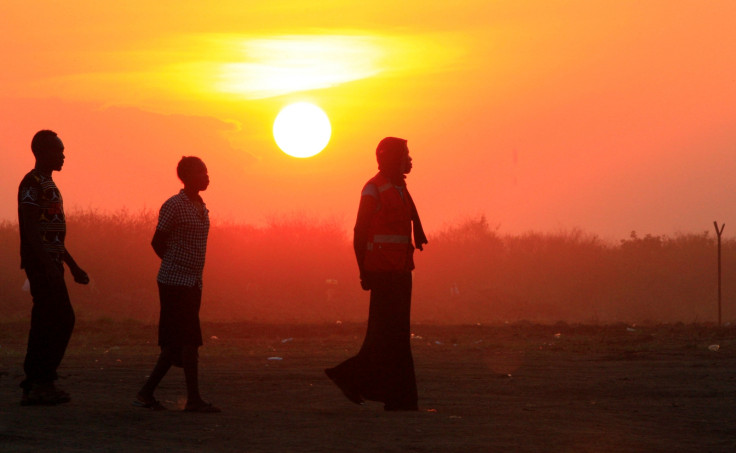South Sudan war: Japan opposes arms embargo doubting its 'effectiveness'
UN proposed one-year-long arms embargo as genocide fears increase in war-torn South Sudan.
Japan will oppose a UN-proposed arms embargo in war torn South Sudan, officials have said. Tokyo fears the embargo could result in the warring sides retaliating against the nearly 14,000 UN peacekeepers, including Japanese troops, deployed to halt ongoing violence.
Earlier in December, the US urged Japan to agree on the embargo, after the UN expressed fears that a genocide similar to the one occurred in Rwanda in 1994 was about to start in South Sudan, unless immediate action was taken.
However, Japan has been reluctant to accept the proposed measures that would prevent the direct or indirect supply, sale or transfer of arms into South Sudan for one year.
"The effectiveness of the sanctions is uncertain,"a Japanese government official was quoted by the Japan Times as saying on 21 December. "The South Sudanese government's efforts, such as the holding of national dialogue, should not be impeded."
South Sudan war
South Sudan descended into war in 2013, just two years after gaining independence from Sudan. The conflict erupted when President Salva Kiir, of the Dinka ethnic group, fired his deputy and rebel leader Riek Machar from his cabinet.
IBTimes UK's exclusive interview with Machar:
Ethnic-related violence targeting Dinka and Nuer ethnic groups then spread, echoing the massacres against Tusti and moderate Hutu that caused at least 800,000 deaths in Rwanda in 1994.
An estimated 50,000 people have been killed in South Sudan, amid allegations of crimes against humanity committed by both sides, including rape, torture and the use of child soldiers. Millions are displaced and are facing severe food shortages due to a man-made famine.
Kiir and Machar have agreed on several peace deals – the last of which was signed in August 2015 – but have failed to control their troops, who have broken every ceasefire since 2014.
Machar, who leads the opposing faction Sudan People's Liberation Movement-in-Opposition (SPLM-IO), fled South Sudan following deadly fighting in Juba in July. He is currently in South Africa, where he said he is seeking medical treatment, but in an exclusive talk with IBTimes UK said he was ready "to go home".

Unmiss 'failed to protect civilians'
Earlier this year, Unmiss (UN mission in South Sudan) was accused of not doing enough to protect civilians, when some 300 people were killed in the capital Juba in July.
Deadly clashes erupted between government troops and forces loyal to Machar resulting, among other things, in the rape and killings of civilians and aid workers and failure to implement the peace deal.
Following the allegations of inaction, a UN probe concluded Unmiss had failed to protect civilians during deadly violence due to "a lack of leadership on the part of key senior mission personnel".
The probe resulted in the sacking of Unmiss chief, Kenyan Lieutenant General Johnson Mogoa Kimani Ondieki. The dismissal angered Kenya, which decided to withdraw its troops from the UN peacekeeping mission.
Unmiss has also been accused of giving weapons to SPLM–IO rebels later accused of massacring people in Bentiu, a town in the north of the country.
© Copyright IBTimes 2025. All rights reserved.






















